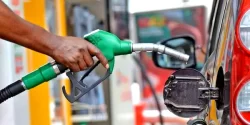Recent power outages across the country have created considerable alarm among the general public – especially the incident on Sunday, March 7th, 2021, which led to a total power system shutdown (a similar incident occurred in May 2017).The general sentiment, undoubtedly, is fear of a return to perennial power outages popularly known as ‘Dumsor’ which defined a period in the country in times past. Let me say this: ‘Dumsor’ is not coming back.
Indeed, the nature of the power system value chain makes that impossible. As a crucial part of the entire value chain, overseeing matters on the transmission aspect of the process, GRIDCo wants to assure the country and all related stakeholders that none of the key participants in the value chain is resting on their oars in their effort to maintain stability, accessibility, consistency and reliability of power supply at all times.
Issues on the ground
What happened on Sunday, March 7th, 2021 – and as highlighted in subsequent statements and interviews to the media, was a transient fault at 13:46h on a major transmission line between Prestea and Obuasi. This caused overloads on adjacent transmission lines and resulted in a shutdown of the generating plants at Aboadze and Bulk Supply Points from the Western parts of the country through the Ashanti Region.
The hydro units at Akosombo and Kpong remained online but somewhat unstable for over fifteen minutes before eventually tripping at 14:04h. Restoration work by our technical resource team led to eventual normalisation that same day. Special mention must be made of the efforts by the VRA team at Akosombo Hydro plant, which ensured quick availability of the first machines online to commence the restoration effort.
We also commend the concerted team effort across the value chain – generation, transmission and distribution – which worked relentlessly to fully restore the system and bring supply back to the entire country.
Ghana has always highlighted in several strategic discussions with key stakeholders the inherent challenges in the value chain – particularly need for the key transmission and distribution infrastructure investments necessary to achieve a robust and reliable power system. Thankfully, government through the Energy Ministry has shown consistent interest and commitment over the years to ensure a progressive and strong sector that is able to surmount and navigate its challenges.
Ensuring stability
Work is currently underway to fix certain incidental problems in the power system. External partners such as the Millennium Development Authority (MiDA); the European Commission, through the French Development Agency (AFD); Siemens and others, are supporting government to resolve key issues in the sector. Currently, several projects are littered across the country aimed at powering the system to the next level.
These include:
- Current construction of the 330kV Anwomaso-kintampo transmission line, earmarked for commissioning by end of July 2021. The Project is being funded as part of the US$173m AFD loan facility, and will help resolve the intermittent power outages in and around the Greater Kumasi area.
- The US$45m Pokuase substation, part of projects under construction by MiDA, will be completed in June 2021; and will enhance supply reliability to major parts of Accra.
- The US$45m Kasoa Bulk Supply Point is expected to enhance power delivery to the fast-growing Awutu Senya East Municipality, which covers Kasoa and its environs. The project will be completed in September 2021.
- Work on the Tema to Accra transmission line upgrade project is ongoing and will be completed in July 2021. This project will additionally improve supply reliability in Accra and Tema, and also ensure the evacuation of more power from generating plants in Tema
Other projects expected to commence are the installation of a 50MVar STATCOM in Kumasi by Siemens, estimated at about US$15m – bringing stability to the system and the Ashanti Region in particular.
Additionally, to permanently address the intermittent power outages being experienced by residents in Greater Kumasi and its environs, government through the Energy Ministry has decided to relocate the Ameri Power Plant, currently in Aboadze, to Kumasi by the first quarter of next year. This will transform power delivery in the region and northern Ghana.
Going forward
Overall, it is undeniable that there is enough generating capacity to meet the country’s demand. Ghana’s system peak demand is close to 3,200MW with an installed capacity of 5,300MW – this means there’s enough capacity to more than meet demand. Some intermittent outages are to be expected on the grid in the coming months due to ongoing projects (the Pokuase and Kasoa substations and other transmission line works across the country): however, there is a general willingness and commitment by all stakeholders in the sector to work fervently on reducing the impact it will have on customers in the country.
In the weeks to follow, GRIDCo and ECG – in partnership with firms working on the key projects – will adequately inform the public on the outage plans required for completion of the respective work in good time. As a key player in the sector, we welcome comments and inputs from all relevant stakeholders and the general public to advance the industry. There is a concerted effort to transform the sector, and it will be reductive for the recent interruptions to be attributed to a lack of funding from the government of Ghana. GRIDCo is always ready for a transparent engagement on matters concerning its role in the sector.
| The writer is the Chief Executive-Ghana Grid Company Limited










